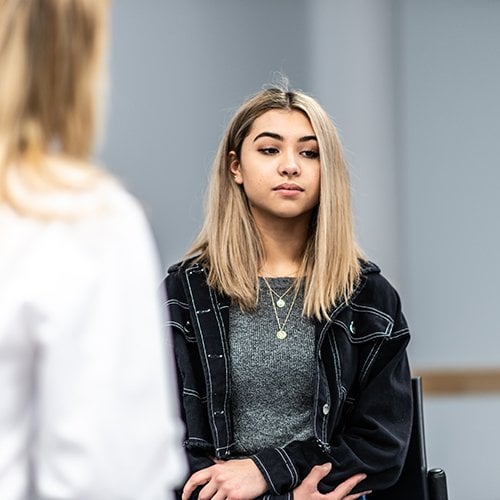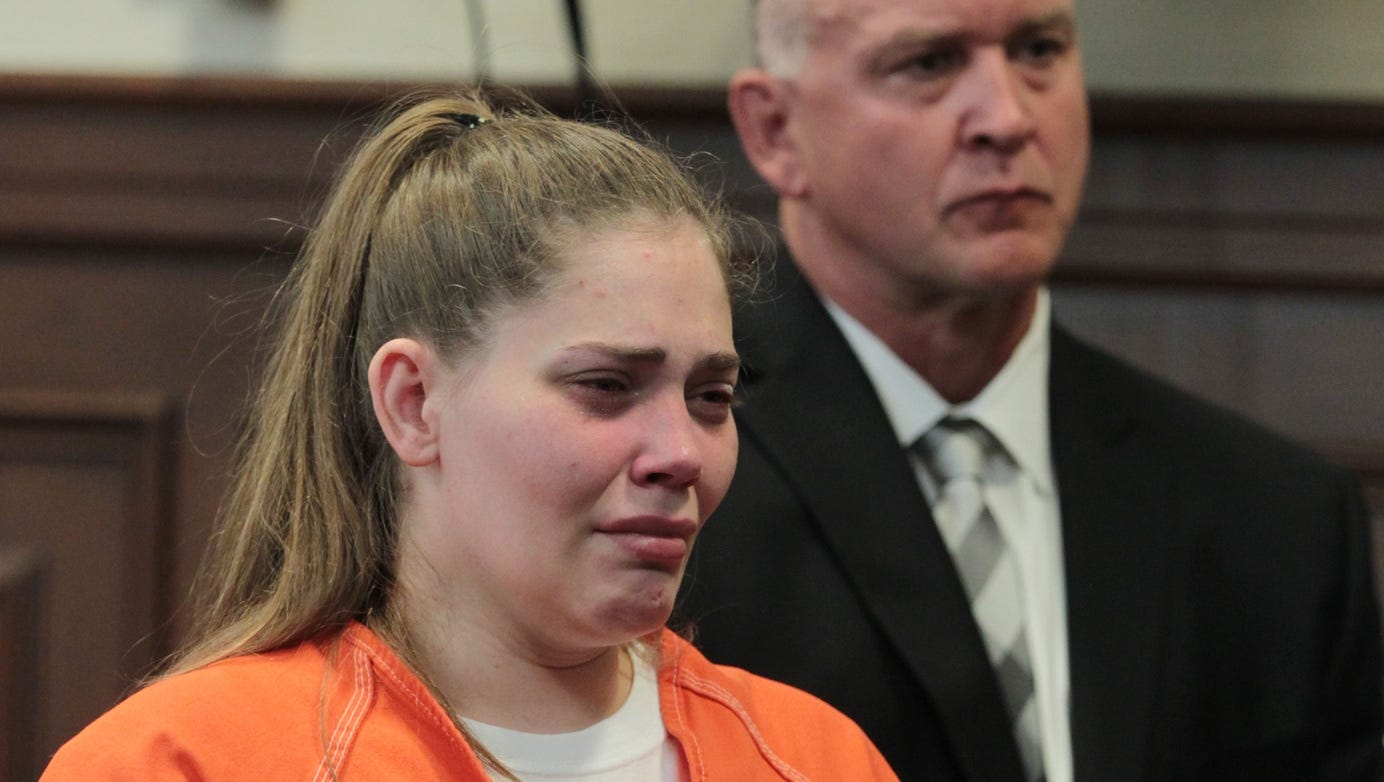Are School Suspensions A Necessary Evil? Examining The Evidence

Table of Contents
The Argument for School Suspensions
Proponents of school suspensions argue that they serve a crucial role in maintaining order and ensuring a safe learning environment.
Maintaining Order and Safety
Suspensions are often seen as a necessary tool for addressing serious student misbehavior that disrupts the educational process and compromises safety.
- Serious offenses justifying suspension: These can include acts of violence, threats, drug possession or distribution, serious insubordination, and persistent defiance of school rules.
- Protecting the school community: Removing students involved in such serious incidents protects other students and staff from harm and creates a safer learning environment for everyone.
However, it's crucial to acknowledge that suspensions alone don't address the underlying causes of disruptive behavior. Simply removing a student from school doesn't solve the root problems contributing to their actions.
Short-Term Consequences and Immediate Impact
While not a long-term solution, suspension can have an immediate impact on disruptive behavior.
- Classroom disruption reduction: Removing a disruptive student from the classroom allows teachers to focus on instruction and create a more productive learning environment for the remaining students.
- Short-term behavioral changes: Some studies suggest that suspensions can lead to a short-term decrease in disruptive behavior immediately following the suspension. However, this effect is often temporary.
It is vital to understand that the short-term benefits of suspension often fail to outweigh the long-term negative consequences for the student and the school community. The temporary removal of a disruptive student does nothing to address the underlying issues driving their behavior, and frequently leads to a cycle of repeated suspensions.
The Case Against School Suspensions
Despite the arguments in favor, compelling evidence suggests that school suspensions are often ineffective and even harmful.
The Ineffectiveness of Suspension as a Deterrent
A significant body of research indicates that suspensions are not a strong deterrent and often fail to address the root causes of misbehavior, leading to recidivism.
- High rates of suspension recurrence: Many students who are suspended are suspended again, indicating that suspension is not an effective long-term solution to behavioral problems.
- Impact on the school-to-prison pipeline: Suspensions, particularly disproportionate ones, contribute to the school-to-prison pipeline, a system that funnels marginalized students into the criminal justice system instead of providing them with support and educational opportunities.
- Negative effects on academic performance: Studies consistently show that students who are suspended experience lower academic achievement, increased dropout rates, and decreased graduation rates. The loss of instructional time significantly impacts their learning and future prospects.
The Disproportionate Impact on Marginalized Students
School suspension data reveals stark racial and socioeconomic disparities.
- Disproportionate suspension rates for students of color: Students of color, particularly Black students, are suspended at significantly higher rates than their white peers, even when controlling for factors like socioeconomic status and prior disciplinary history.
- Bias in disciplinary practices: These disparities suggest the presence of implicit bias in disciplinary practices, leading to harsher punishments for students from marginalized groups.
- Exacerbating existing inequalities: Suspensions worsen existing inequalities, perpetuating cycles of poverty and disadvantage.
The Negative Impact on Student Well-being
Suspensions have serious negative consequences for students' mental health and social-emotional development.
- Increased risk of mental health issues: Suspended students are at increased risk of developing depression, anxiety, and other mental health problems.
- Difficulty reintegrating into school: Returning to school after a suspension can be challenging, leading to social isolation, academic difficulties, and further behavioral problems.
- Loss of learning time and academic setbacks: The time missed during suspension exacerbates existing academic challenges and contributes to further learning loss.
Exploring Alternative Disciplinary Approaches
Instead of relying solely on suspensions, schools should explore alternative approaches that address the root causes of misbehavior.
Restorative Justice Practices
Restorative justice focuses on repairing harm and building relationships.
- Examples of restorative justice practices: Mediation, conflict resolution circles, and community service projects can help students understand the impact of their actions and take responsibility for their behavior.
- Potential benefits: Restorative practices have been shown to reduce recidivism, improve school climate, and foster positive relationships among students and staff.
Positive Behavioral Interventions and Supports (PBIS)
PBIS is a proactive approach that focuses on preventing misbehavior before it occurs.
- Key components of PBIS: Clear expectations, positive reinforcement, and consistent consequences are key components of a successful PBIS program.
- Proactive strategies: Teaching social-emotional skills, creating a positive school climate, and providing individualized support for students at risk of misbehavior are also essential aspects of PBIS.
Conclusion
The effectiveness of school suspensions as a disciplinary tool is highly debatable. While they might provide a short-term solution for maintaining order, the evidence strongly suggests that they are often ineffective in addressing the underlying causes of misbehavior and have significant negative consequences for students, particularly those from marginalized groups. The disproportionate impact of school suspensions on students of color is undeniable and demands immediate attention. Instead of relying solely on suspensions, schools must prioritize alternative disciplinary approaches such as restorative justice and PBIS, which address the root causes of misbehavior and promote a more equitable and supportive learning environment. Let's move beyond simply asking whether school suspensions are a necessary evil and instead focus on developing more effective and equitable disciplinary practices. Join the conversation on finding better alternatives to school suspensions and creating safer, more inclusive schools for all students.

Featured Posts
-
 International Harry Potter Day Find The Perfect Themed Merchandise Online
May 03, 2025
International Harry Potter Day Find The Perfect Themed Merchandise Online
May 03, 2025 -
 Farage And Lowes Bitter Feud Intensifies With Public Attacks
May 03, 2025
Farage And Lowes Bitter Feud Intensifies With Public Attacks
May 03, 2025 -
 Fbi Reassigns Agents From Kneeling Protest Photo Exclusive Details
May 03, 2025
Fbi Reassigns Agents From Kneeling Protest Photo Exclusive Details
May 03, 2025 -
 Georgia Stanway Mourns Kendal Girl Killed In On Pitch Incident
May 03, 2025
Georgia Stanway Mourns Kendal Girl Killed In On Pitch Incident
May 03, 2025 -
 The Astonishing Change Of Harry Potters Crabbe Actor
May 03, 2025
The Astonishing Change Of Harry Potters Crabbe Actor
May 03, 2025
